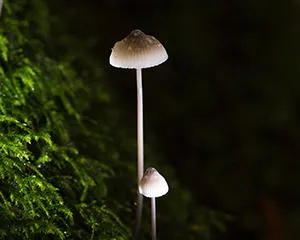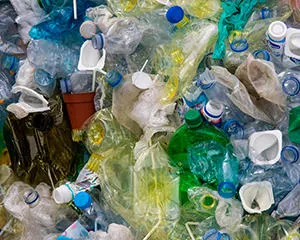28 January 2020
King's in the news - round-up of December 2019
Research from King’s College London and Guy’s, St Thomas’ and King’s College Hospitals makes headlines around the world. We’ve selected a few recent stories to share with you like the problem of smartphone addiction in young people and the research suggesting magic mushrooms could be a safe treatment for depression.

A quarter of young people are 'problematic' smartphone users
A King’s analysis of more than 41 studies involving more than 41,000 under-20s found that one in four youngsters used phones in a way consistent with a behavioural addiction. Such an addiction means that people become panicky or upset if they are denied constant access and can have serious consequences for mental health.
Read more on BBC News

Is the US finally waking up to the climate crisis?
A new survey of Americans shows they have an increasing awareness of the climate crisis, but still hugely underestimate the scale of the emergency. Professor Bobby Duffy, Director of the Policy Institute at King’s, unpacks what their misconceptions mean for those campaigning for climate action.
'It’s not enough to just provide more facts and expect people to hear them and act, regardless of how extraordinary those facts are.'
Read more in The Conversation

Magic mushrooms could provide new treatment for depression
Magic mushrooms have cleared a significant hurdle for use in treating depression after a clinical trial found that their active ingredient was safe. The findings, run by King's and a mental health care company, are a step towards licensing psilocybin for clinical use.
James Rucker, lead investigator at King’s Institute of Psychiatry, Psychology & Neuroscience, said:
'The results of the study are clinically reassuring and support further development of psilocybin as a treatment for patients with mental health problems that haven’t improved with conventional therapy, such as treatment-resistant depression.'
Read more in the Financial Times

King’s study reveals high levels of microplastics in London air
Researchers from King’s found that microplastics are present in the air in London at higher abundances than any other major city examined so far.
Microplastics are made through the fragmentation or scuffing of larger pieces of plastic, such as from degraded plastic litter or fibres from synthetic clothing. Although their impact on humans is still relatively unknown, occupational studies indicate that workers exposed to very high levels of plastic dust suffer chronic inflammation of the airway, in some (worst) cases interstitial lung disease and tissue scarring.
Hear more news from the alumni team
Keep up to date with the latest alumni news on our social media channels: Twitter, Facebook and Instagram.
